Dundee businessman Alan Calder McNicoll first got to know Zimbabwe in 2008 through his passion for wildlife.
Horrified by the “horrendous inflation” gripping the southern African country, he went back the following year to work on a lion conservation project.
He later became a project ambassador.
Desire to help Zimbabwe people
But the more he got to know the country, the more he wanted to do something to help the local community.
He was particularly struck by the “dire straits” facing an orphanage.
Keen to help, he came home, raised money, took it back out there and bought some white goods.
He painted the inside of the orphanage where boys were sleeping eight per tiny room.
When a Norwegian organisation stepped in and built a more substantial facility, he continued to donate and raise money for staff.
The staff were being supported by Scripture Union, which then shifted its focus to another part of Zimbabwe where there were problems with starvation.
Getting Rotary Club of Dundee involved
After meeting two women from Sweden in 2014, Alan co-founded a fundraising group called Champions for Children.
He raised more than $80,000 for the orphans.
However, as the years went by, and with staff now being supported by the Norwegian organisation, he decided to look again at something that would benefit the wider community.
Meeting a man from a local university in Zimbabwe, and by now a member of the Rotary Club of Dundee, Alan came up with a number of ideas focussing on sustainability.
Presenting a number of suggestions to Dundee Rotary’s International Service Committee, which in 2017 was chaired by Rotarian Dai John, the committee decided to support the idea of a market garden because it had the best opportunity to skill up the street kids.
It was hoped this would generate revenue and be self-sustaining and enduring.
Crucially, the proposal was very much in line with Rotary’s aims to support international humanitarian aid, international education and environment.
It also had to meet Rotary’s “four-way test” – is it fair, is it true, is it beneficial to all, and will it help to grow relationships and friendships?
Getting the market garden off the ground
In May 2018, a district grant application was produced and submitted to Rotary District 1010, appropriate training and governance requirements were met, and a district grant of £4500, the maximum amount available at the time, was approved.
This sum, matched by a Rotary Club of Dundee contribution of £5000 and an in-kind contribution from the Rotary Club of Gweru in Zimbabwe to the value of approximately £1506, produced a project budget of £11,006.
Having obtained funding, work commenced on the procurement and construction of a polytunnel.
Overcoming challenges
However, successive challenges had to be overcome first, which dragged the project out.
During 2018-2019, difficulties arose safely transferring grant funding to the Rotary Club of Gweru.
Civil unrest was caused by deteriorating economic conditions in Zimbabwe.
In March 2019, the original polytunnel was destroyed by Cyclone Idai, requiring the sourcing and construction of a replacement.
Between March 2020 and the end of 2021, the global Covid-19 pandemic impacted on the project.
A land-use dispute then resulted in the dismantling, relocation and reconstruction of the replacement polytunnel.
An aquaponics system was then added due to concern over the availability of sufficient water for crop irrigation at the original location.
However, these challenges were further compounded by economic instability in Zimbabwe.
This, together with associated high rates of inflation, resulted in increased costs, regular power outages for up to 18 hours per day, and affected Gweru Rotarians’ ability to devote time, effort and personal resources.
Dundee Rotary trip to see project
Having not long returned from a trip to Zimbabwe to see the 400 square metre polytunnel project for themselves, Alan and Dai say the tenacity, determination and resilience of the Gweru Rotary Club project team in achieving this outcome cannot be overstated.
At the time of their visit between March 27 and April 7, the polytunnel was producing its first crop of cucumbers, with a crop of tomatoes approximately six weeks from harvesting.
“The difficulties of doing any sort of project like this in Zimbabwe can’t be underestimated,” said Alan, 74, in an interview with The Courier.
“It’s in turmoil, there were financial embargos for a while.
“We couldn’t get money in.
“There were severe political difficulties that we had to side step round a little bit.
“It’s not an easy place to pull off something like this.
“There were times I felt like banging my head off brick wall and I had many sleepless nights.
“But absolutely, it made it more gratifying to see it come together.”
An emotional experience
Dai, 63, who is ex-RAF, describes Alan, who sells sleeping bag liners, as an “African old hand”.
But he admits it was quite emotional – especially for Alan – to see what was originally a two-year project, finally come to fruition.
With the project dragging on since 2017, there had been times when some in the Dundee club started to doubt if it would ever happen.
“I was overwhelmed by the determination and resilience of the people,” said Dai.
“We knew that already from our dealings with them from afar and by Zoom.
“But meeting them face to face, that extraordinary determination to get things done in the face of huge adversity –that really struck me.
“Their ability to run the centre on a shoestring. They are extremely resourceful.
“Yet the sad thing is a country like Zimbabwe has all these resources – human capital, geology, minerals, agriculture, climate – it’s all there.
“But it’s a basket case when it comes to government or misgovernment.”
Details of the Dundee to Zimbabwe trip
On March 27-28, Allan and Dai travelled from Dundee to Gweru via Edinburgh, London, Johannesburg and Bulawayo.
They were met at Bulawayo airport by Rotary Club Gweru president Thomas Murehwa and Tendai Medanzi – the Gweru project team leader.
They were driven the 170 km to Antelope Park, a short distance from Gweru.
The two days there provided an opportunity to acclimatise and for them to discuss the project with Murehwa who was also staying.
They also met with the Antelope Park community projects manager to discuss potential future partnered projects.
On the morning of March 30 they were driven to Gweru where they checked in to Kanyi Lodge, owned by Rotary District 9210 AG Philippa Maphosa.
From there they were taken by President Thomas to view the site of RC Gweru’s next project, the refurbishment of an abandoned children’s play park.
On the afternoon of March 30, they had their first sighting of the polytunnel market garden itself, permanently located on land owned by Rosedale Children’s Home.
There, they met representatives of Rosedale Children’s Home, Gweru Rotary Club and members of the management board who will provide ongoing governance of the polytunnel.
Discussions included the size and quality of the cucumber and tomato crops, the requirements for regular pesticide treatment and the importance of the biosecurity measures in place to minimise contamination risks.
Wider community benefits
Dai said the wider community benefits from the project were already beginning to be felt.
An estimated $18000 per year could be earned from the sale of tomatoes and cucumbers currently being grown – and that might increase.
There’s also the upskilling of children and young people in the children’s home.
The skills development element of the project is addressed by young people from Rosedale who help to tend and harvest the crops.
It’s hoped such positive inputs could help them avoid ending up on the street or falling into the hands of benign actors.
The other major spin-off ambition is that the management board running the current polytunnel market garden could be used as a template to replicate the project elsewhere.
Could the project be duplicated?
The Rotary district in addition to Zimbabwe also encompasses Mozambique, Malawi and Zambia.
Alan added: “I can actually see it as a project where if the duplication aspect works, there’s no reason why we can’t do it in other parts.
“One of the things that excites me – and it’s always been my vision – is whilst people can do a lot of good from outside of the country, the ultimate aim of this is to have some Zimbabweans supporting Zimbabweans.
“The people out there are very skilled.
“I don’t think it’s all going to be straightforward.
“There’s going to be peaks and troughs along the way.
“But something great is going to be achieved.
“We would like to record our heartfelt thanks for the kindness and hospitality of all those we met during the visit.”
Rotary Club of Dundee president and former DC Thomson journalist Andy Argo, who is the current chairman of Dundee Rotary’s international and foundation committee, added: “It’s been a wonderful project that we are delighted to have contributed to.
“Great credit is due to Dai and Alan from our club, and to our friends in Zimbabwe for bringing it to fruition.”
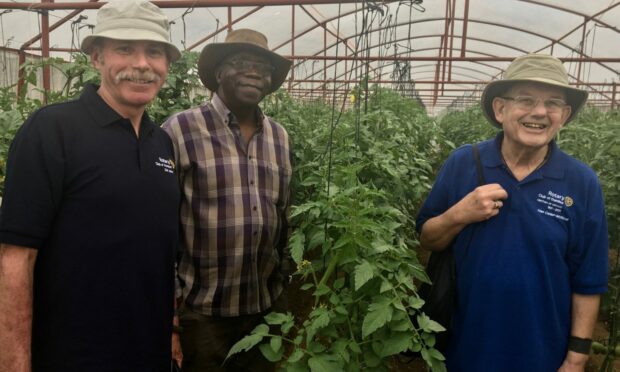
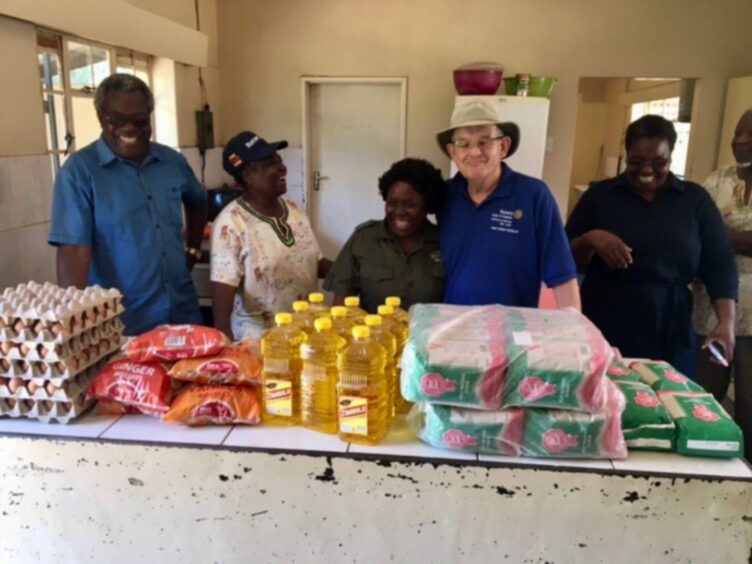
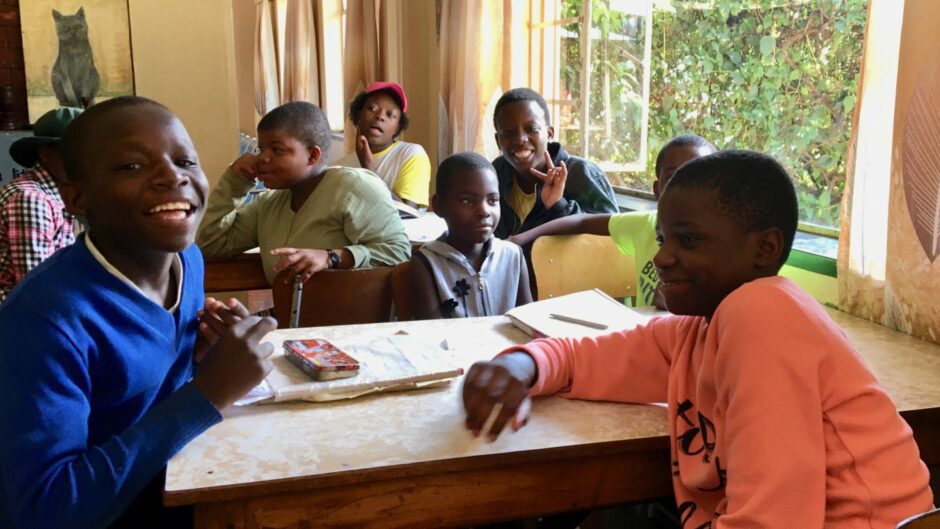
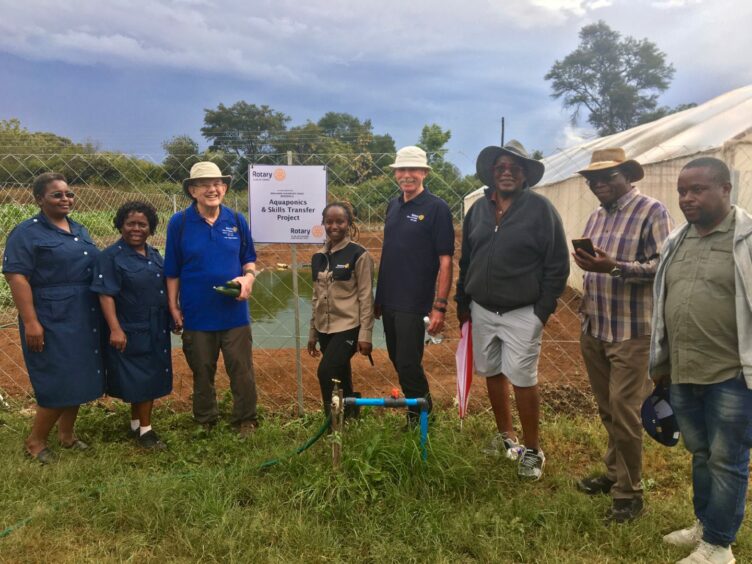
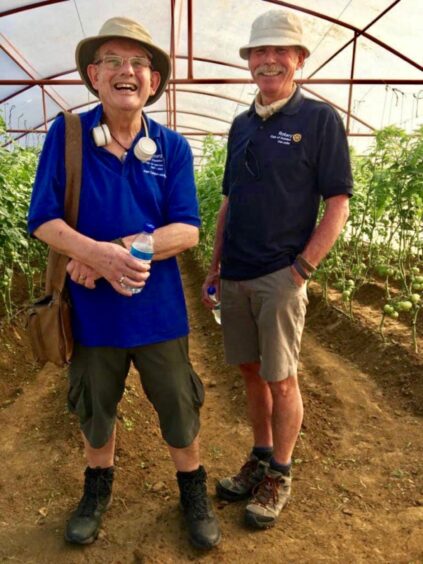

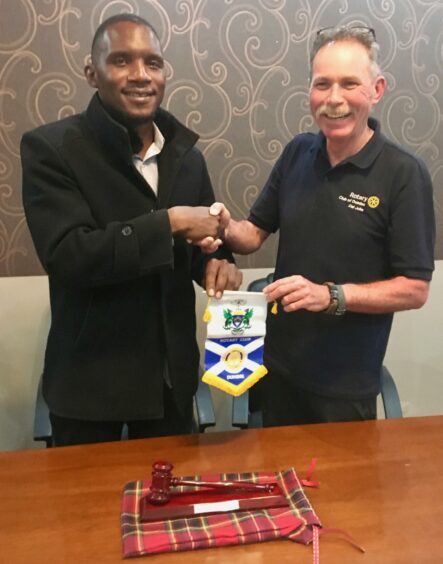

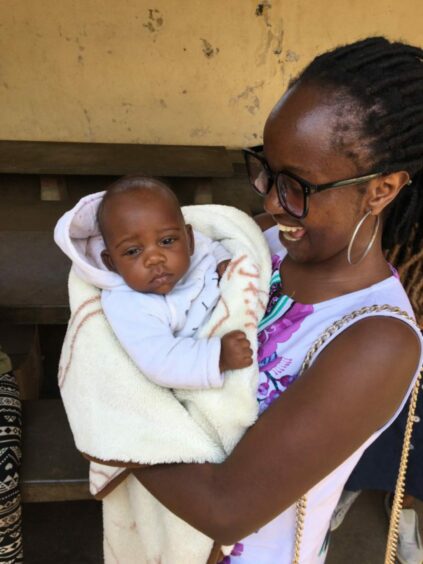

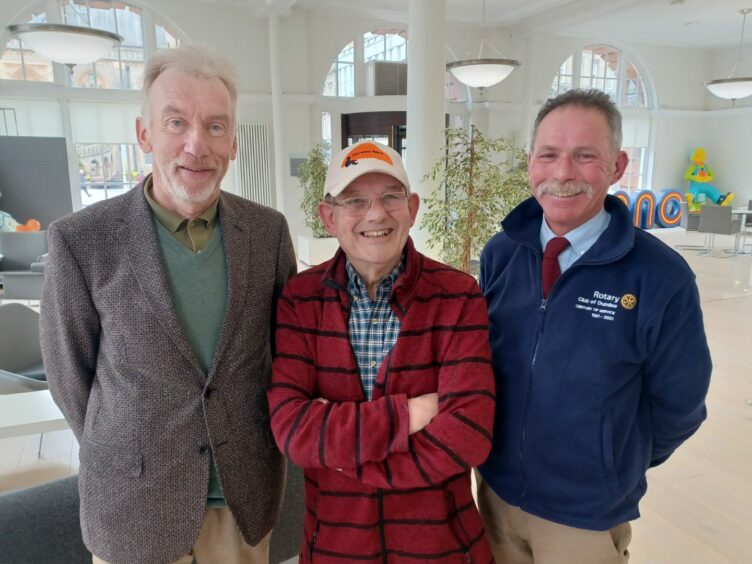
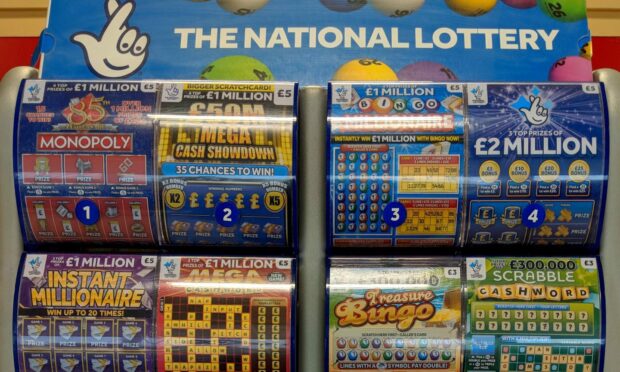
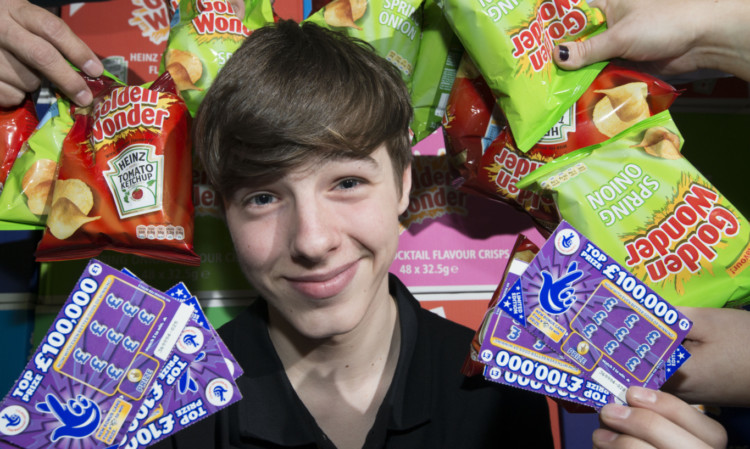
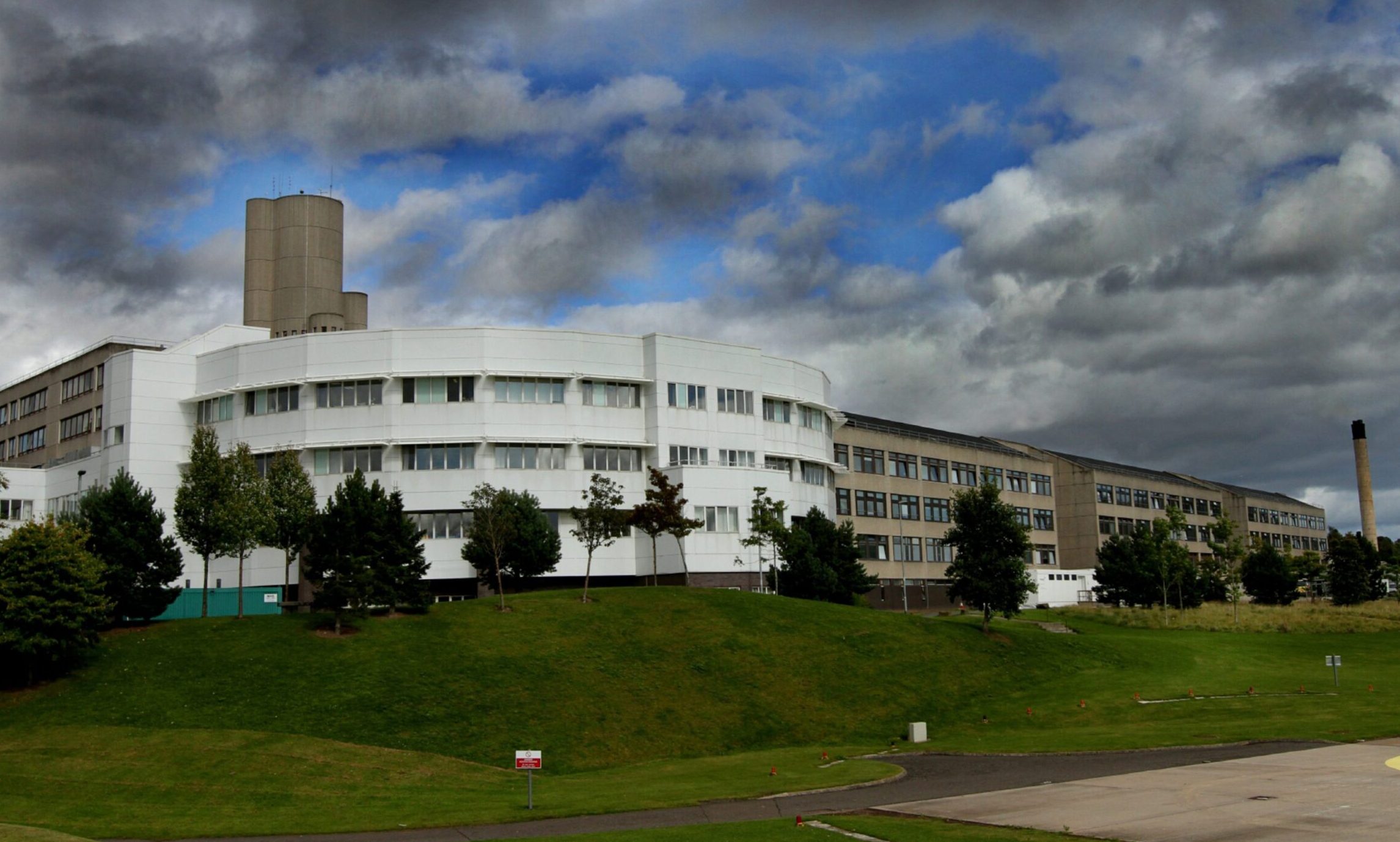



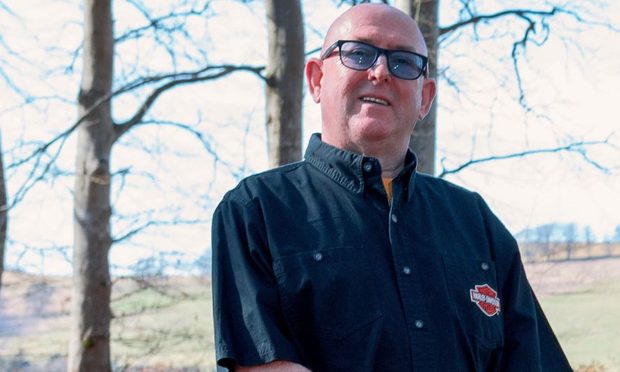
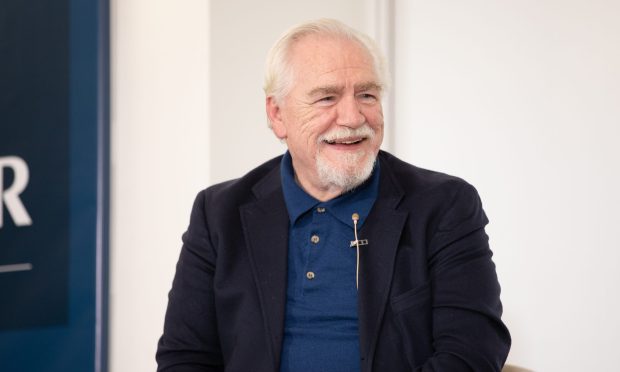
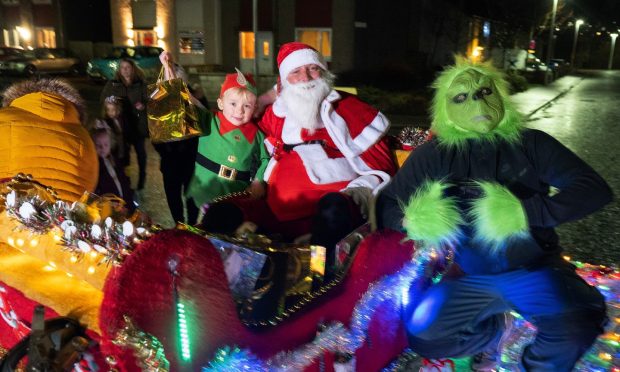

Conversation